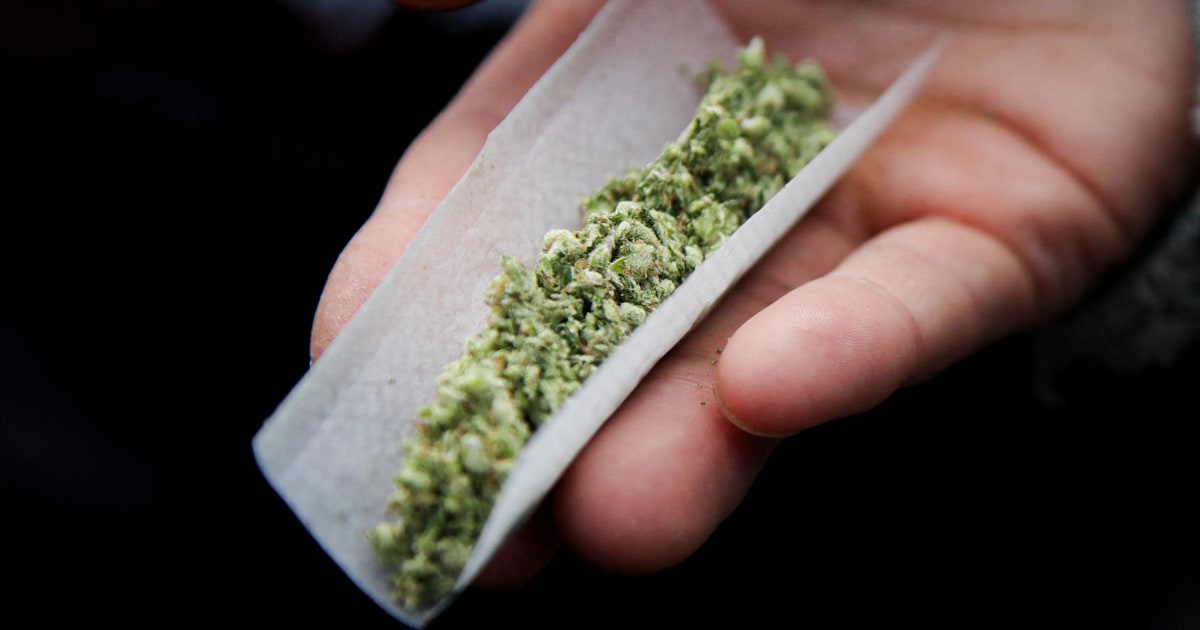We’ve seen some absurd gun rulings recently, including a Trump-appointed Kansas judge’s decision dismissing machine-gun charges under the Second Amendment and Supreme Court precedent.
A new ruling out of the 5th U.S. Circuit Court of Appeals — which has handed down its share of wacky opinions on all sorts of issues, including guns — shows that the Supreme Court’s firearms jurisprudence, however illogical it is, can lead to a more sensible result.
That ruling came Wednesday in the federal case of Paola Connelly, described by the 5th Circuit panel as “a non-violent, marijuana smoking gunowner.” One of the laws she was charged with violating in Texas was 18 U.S.C. § 922(g)(3), for allegedly possessing firearms and ammunition as an unlawful user of a controlled substance.
The three-judge panel summarized the facts this way:
El Paso police came to her house in response to a “shots fired” call. When they arrived, they saw John, Paola’s husband, standing at their neighbor’s door firing a shotgun. After arresting him, they spoke with Paola, who indicated that she would at times smoke marijuana as a sleep aid and for anxiety. A sweep revealed that the Connellys’ home contained drug paraphernalia and several firearms, including firearms owned by Paola. There was no indication that Paola was intoxicated at the time.
To figure out whether her Second Amendment rights were infringed upon, the panel had to decide, under recent Supreme Court precedent, whether the law “is consistent with our history and tradition of firearms regulation.” The panel concluded that history and tradition may support “some limits on a presently intoxicated person’s right to carry a weapon,” but not “disarming a sober person based solely on past substance usage.” So the 5th Circuit agreed with Connelly’s challenge as it applied to her case specifically (what’s called an “as-applied” challenge) while rejecting her challenge to the law itself (what’s called a “facial” challenge).
“Just as there is no historical justification for disarming citizens of sound mind, there is no historical justification for disarming a sober citizen not presently under an impairing influence,” Judge Kurt Engelhardt wrote for the panel. The Trump appointee was joined by Judges Jerry Smith and Irma Carrillo Ramirez, who are Reagan and Biden appointees, respectively.
Government prosecutors had analogized drug use to historical restrictions on the mentally ill, but the appeals court rejected that comparison, reasoning that: “While intoxicated, she may be comparable to a severely mentally ill person whom the Founders would disarm. But, while sober, she is like a repeat alcohol user between periods of intoxication, whom the Founders would not disarm.”
The court likewise rejected the government’s reliance on the historical disarming of “dangerous” people:
Marijuana users are not a class of political traitors, as English Loyalists were perceived to be. Nor are they like Catholics and other religious dissenters who were seen as potential insurrectionists.
While true and seemingly supporting a logical result here, such an observation highlights the absurdity of the analysis in these cases in modern times.
It’s an analysis that the likes of Hunter Biden will want to harness in his own case, after he was found guilty in Delaware federal court in June on multiple counts, including the 922(g)(3) charge. Biden’s case falls under a different appeals court, and it would take another Supreme Court ruling to set a national standard.
It’s an analysis that the likes of Hunter Biden will want to harness in his own case, after he was found guilty in Delaware federal court in June on multiple counts, including the 922(g)(3) charge.
In the high court’s most recent Second Amendment ruling this past term, United States v. Rahimi, the court upheld gun restrictions on people subject to domestic violence restraining orders. The ruling suggested that the court isn’t prepared to take its 2022 Bruen precedent, which laid out the historical analysis test, as far as it can go. The drug-related issue is one of multiple important questions raised by recent Supreme Court rulings, but as the Rahimi case showed, it will be up to the justices to handle each specific issue as it comes to them.
Subscribe to the Deadline: Legal Newsletter for updates and expert analysis on the top legal stories. The newsletter will return to its regular weekly schedule when the Supreme Court’s next term kicks off in October.


Leave a Reply